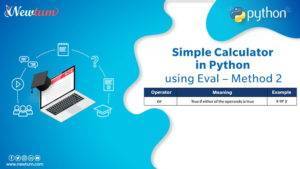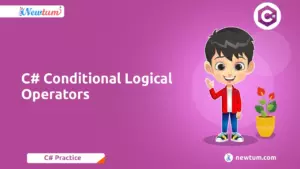Logical operators in C are used to combine two or more conditions and return a true (1) or false (0) result. The three main logical operators are AND (&&), OR (||), and NOT (!). They are commonly used in decision-making statements like if and while.
In programming, logic drives everything. Whether you’re validating user input or controlling game behavior, logical operators make it possible to decide “what happens next.” Understanding how these operators work helps you write cleaner, more efficient C code that behaves exactly as intended.
Quick Summary of Logical Operators in C
| Operator | Symbol | Description | Example |
|---|---|---|---|
| AND | && | True if both conditions are true | a > 5 && b < 10 |
| OR | ` | ` | |
| NOT | ! | Reverses the logical state | !(a > b) |
What Are Logical Operators in C?
Logical operators in C are used to combine multiple conditions and evaluate whether an overall expression is true or false. They are mainly used in decision-making statements like if, while, and for.
There are three logical operators in C:
| Operator | Symbol | Description | Example |
|---|---|---|---|
| AND | && | Returns true if both conditions are true | (a > 5 && b < 10) |
| OR | ` | ` | |
| NOT | ! | Reverses the logical state of its operand | !(a > b) |
Truth Tables for Logical Operators
1. AND (&&) Operator
| Condition 1 | Condition 2 | Result |
|---|---|---|
| True (1) | True (1) | True (1) |
| True (1) | False (0) | False (0) |
| False (0) | True (1) | False (0) |
| False (0) | False (0) | False (0) |
2. OR (||) Operator
| Condition 1 | Condition 2 | Result |
|---|---|---|
| True (1) | True (1) | True (1) |
| True (1) | False (0) | True (1) |
| False (0) | True (1) | True (1) |
| False (0) | False (0) | False (0) |
3. NOT (!) Operator
| Condition | Result |
|---|---|
| True (1) | False (0) |
| False (0) | True (1) |
How Do Logical Operators Work in Decision-Making?
Logical operators in C play a key role in controlling the flow of execution.
They help you perform multiple checks within a single statement.
Example use cases:
ifstatements: Check multiple conditions before executing a block of code.whileloops: Continue looping until all conditions are satisfied.- Nested conditions: Combine several logical expressions for complex decision-making.
Example Code: Logical Operators in Action
#include <stdio.h>
int main() {
int a = 5, b = 10;
if (a > 0 && b > 0) {
printf("Both are positive numbers.");
}
if (a == 5 || b == 0) {
printf("\nAt least one condition is true.");
}
if (!(a < 0)) {
printf("\nA is not a negative number.");
}
return 0;
}
Output:
Both are positive numbers.
At least one condition is true.
A is not a negative number.Practical Uses of Logical Operators in C
- Error Handling in Payment Systems by PayPal
PayPal uses logical operators to manage error handling in their payment systems to ensure secure transactions. For instance, verifying user credentials might involve multiple conditions that need to be true for a transaction to proceed.
Output: Transaction Declined#include int main() { int isUserAuthenticated = 1; int isBalanceSufficient = 0; if (isUserAuthenticated && isBalanceSufficient) { printf("Transaction Approved "); } else { printf("Transaction Declined "); } return 0; } - Shopping Cart Validation by Amazon
Amazon utilises logical operators in their shopping cart systems to validate items before checkout. Conditions such as in-stock status and valid shipping address are checked simultaneously.
Output: Checkout Possible#include int main() { int isItemInStock = 1; int isShippingAddressValid = 1; if (isItemInStock && isShippingAddressValid) { printf("Checkout Possible "); } else { printf("Checkout Not Possible "); } return 0; } - User Authentication by Facebook
Facebook employs logical operators during user login to guarantee that the username and password both match what’s stored in their databases.
Output: Login Failed#include int main() { int isUsernameValid = 1; int isPasswordValid = 0; if (isUsernameValid && isPasswordValid) { printf("Login Success "); } else { printf("Login Failed "); } return 0; }
Pros & Cons of Logical Operators in C
| Operator | Pros | Cons |
|---|---|---|
AND (&&) | Ensures both conditions are true | Fails if one condition is false |
| OR (` | `) | |
NOT (!) | Simple and efficient negation | Can reduce readability in complex logic |
FAQ: Logical Operators in C
1. What is the difference between && and & in C?
Logical AND (&&) evaluates boolean expressions (true/false) and supports short-circuiting, meaning the second condition is skipped if the first is false. Bitwise AND (&) works on individual bits and always evaluates both operands. Many guides miss emphasizing short-circuiting and its effect on performance.
2. Can I combine multiple logical operators in a single if statement?
Yes, you can combine multiple logical operators using parentheses to control precedence. Example: if ((a > 0 && b < 10) || c == 5) { ... }. Competitors often show only single-operator examples, while users search for “multiple conditions in one if statement.”
3. Why is my logical operator returning unexpected results?
Common mistakes include misunderstanding operator precedence (&& is evaluated before ||), using assignment = instead of comparison ==, or mixing boolean and integer values. Many guides explain these issues separately but rarely together.
4. What is short-circuit evaluation in logical operators?
Short-circuiting means the second condition is skipped if the first condition already determines the result. Example: if (a == 0 && b / a > 2) { ... } — the division by zero is avoided because the first condition is false. Many guides do not explain this practical safety use.
5. Can logical operators be used with non-boolean values?
Yes, any non-zero value is considered true, and zero is false. Logical operators automatically convert results to 1 (true) or 0 (false). Many tutorials do not clarify that logical operators can directly handle integers.
6. How does the NOT (!) operator work with multiple conditions?
You can negate an entire expression with parentheses: if (!(a > 0 && b < 10)) { ... }. Most guides show only simple NOT usage, not how to negate complex conditions.
7. How are logical operators evaluated with mixed data types?
Logical operators automatically convert non-zero integers or floats to true and zero to false. Some beginner programmers assume they only work with int or bool, which is not correct.
8. What happens if I use logical operators inside a loop?
Logical operators can control loop execution. For example, while (a < 10 && b > 0) { ... } continues only while both conditions are true. Competitors rarely explain short-circuiting within loops and potential runtime benefits.
9. Can logical operators be nested inside each other?
Yes, expressions like if ((a > 0 && b < 10) || (c == 5 && d != 0)) { ... } are valid. Many beginner guides fail to explain the importance of parentheses to maintain clarity and correct evaluation order.
10. Why should I prefer && over & for boolean expressions?
&& is safer and more efficient due to short-circuiting. Using & on boolean expressions evaluates both conditions every time, which can cause unexpected results or unnecessary computations.
11. Are logical operators case-sensitive in C?
Yes, operators like &&, ||, and ! are fixed symbols and must be written exactly as defined. Misusing symbols like And or Or will cause compilation errors. Many guides assume this is obvious and skip mentioning it.
12. How can I debug logical operator issues effectively?
Print intermediate values or use parentheses to isolate conditions. Example:
printf("%d %d\n", a > 0, b < 10);
if ((a > 0 && b < 10)) { ... }
Many guides miss teaching practical debugging for combined logical expressions, which users frequently search for.
Our AI-powered C online compiler lets you write, run, and test code instantly! With intelligent suggestions and debugging, you’ll effortlessly improve your skills. No setup hassle—just dive into coding! It’s like having a coding buddy right at your fingertips, guiding you every step of the way.
Conclusion
“Logical Operators in C” are the building blocks for making decisions in code, empowering you to craft dynamic, efficient programs. Dive into it, and you’ll find yourself mastering complex logic with ease. For further learning, explore more programming knowledge with Newtum. Give it a go and transform your coding journey!
Explore more about Introduction to Control Structures in C: If, Else, and Switch and Operators in C to strengthen your logic-building skills.
📘 Download our “C Operators Cheat Sheet” to keep all operator types handy while coding!
Edited and Compiled by
This article was compiled and edited by @rasikadeshpande, who has over 4 years of experience in writing. She’s passionate about helping beginners understand technical topics in a more interactive way.



